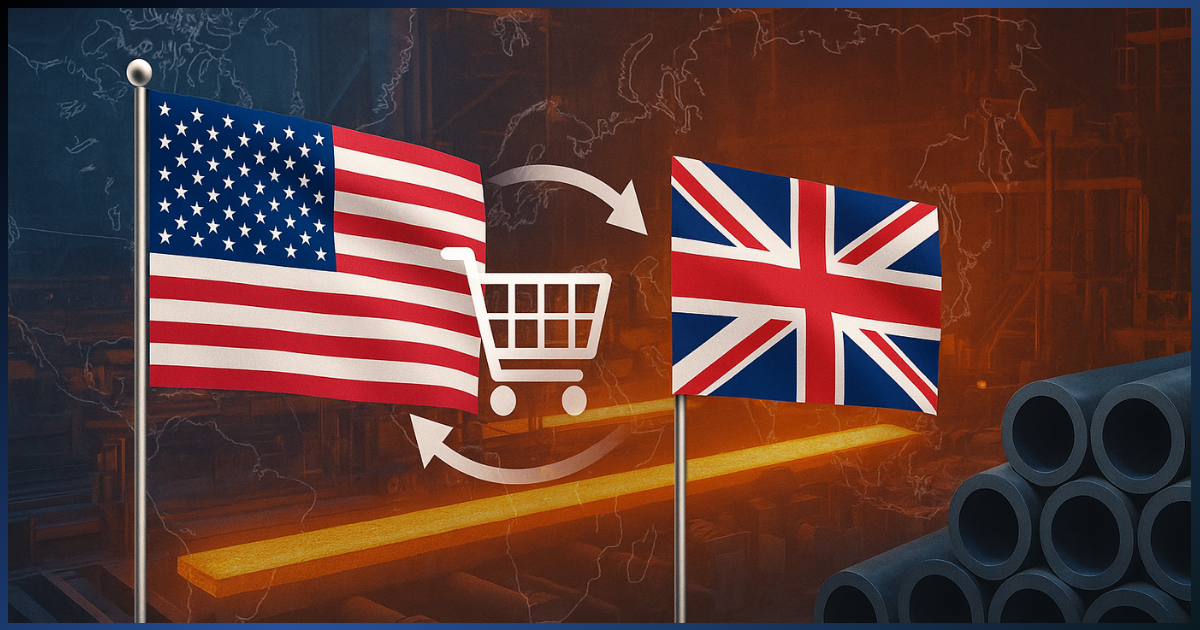India–US Trade Tensions Rise Over Steel and Auto Tariffs NMDC Limited reports a 38% drop in Q4 FY24 consolidated net profit RINL to Raise $23 Million Through Land Sales Amid Crisis

A major trade agreement between the United States and United Kingdom has officially come into force, slashing tariffs on key British exports. Effective June 30, the deal reduces the US import tariff on UK-made vehicles to 10% for up to 100,000 cars annually—down from the previous 27.5% rate. It also removes all tariffs on UK aerospace components, including aircraft engines and parts.
This marks a significant win for British automotive and aerospace industries, expected to boost exports and enhance transatlantic supply chains.
However, not all sectors are celebrating. The UK steel and aluminum industries remain under pressure as a critical exemption from US tariffs—originally imposed under the Trump administration—is set to expire on July 9. Without a permanent deal, UK steel exports could again face tariffs of up to 50%.
Negotiations continue over complex “melted and poured” origin rules, which determine the tariff status of steel based on where it’s processed. UK officials are working to secure lasting relief, while unions and manufacturers urge swift action to avoid major disruptions.
As the deadline approaches, all eyes are on whether the UK can secure a final steel agreement to protect jobs and maintain access to the lucrative US market.
Also Read : Trump Backs Revised U.S. Steel–Nippon Deal in Pennsylvania Rally World’s biggest cruise ship sets sail, bringing concerns about methane emissions